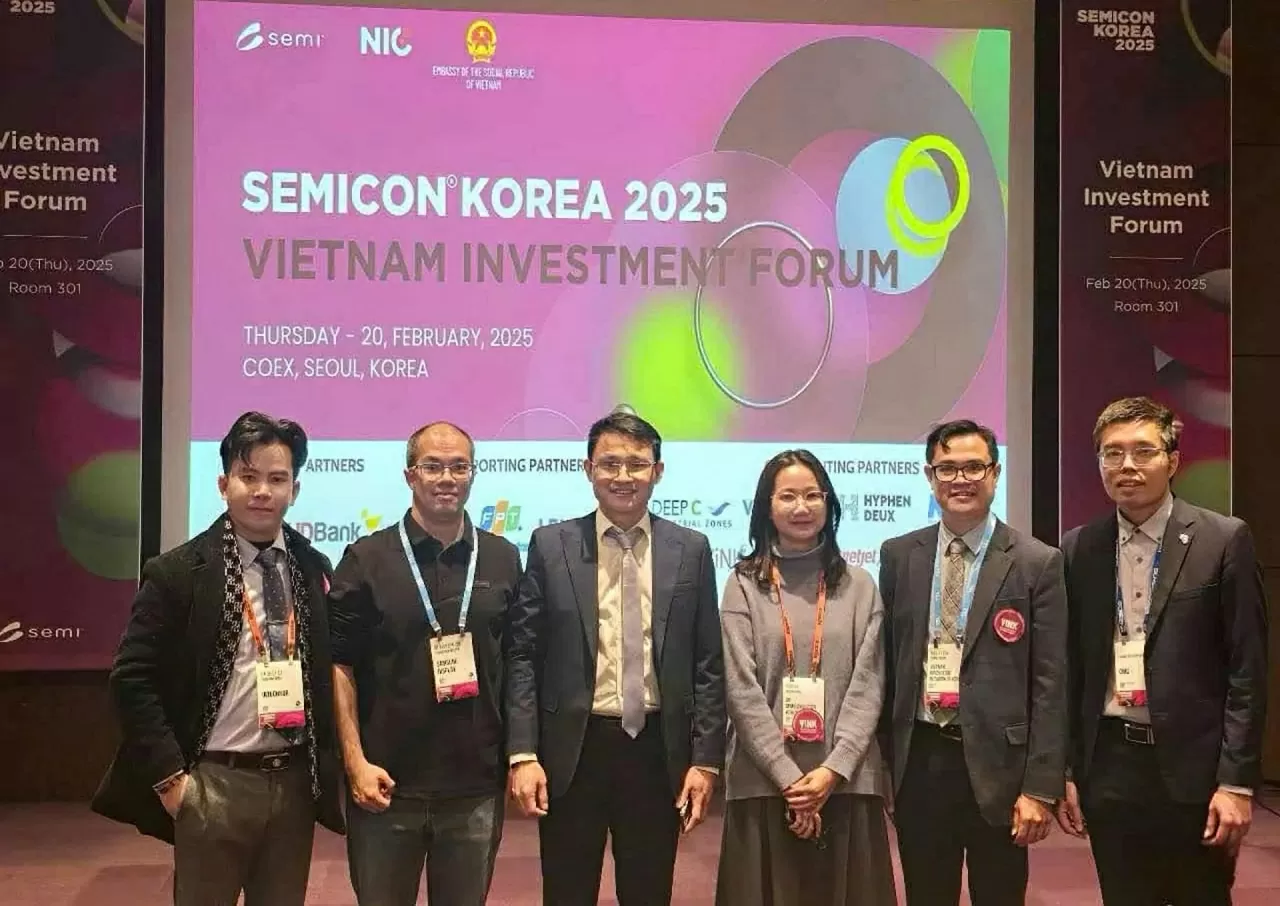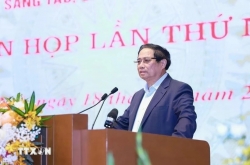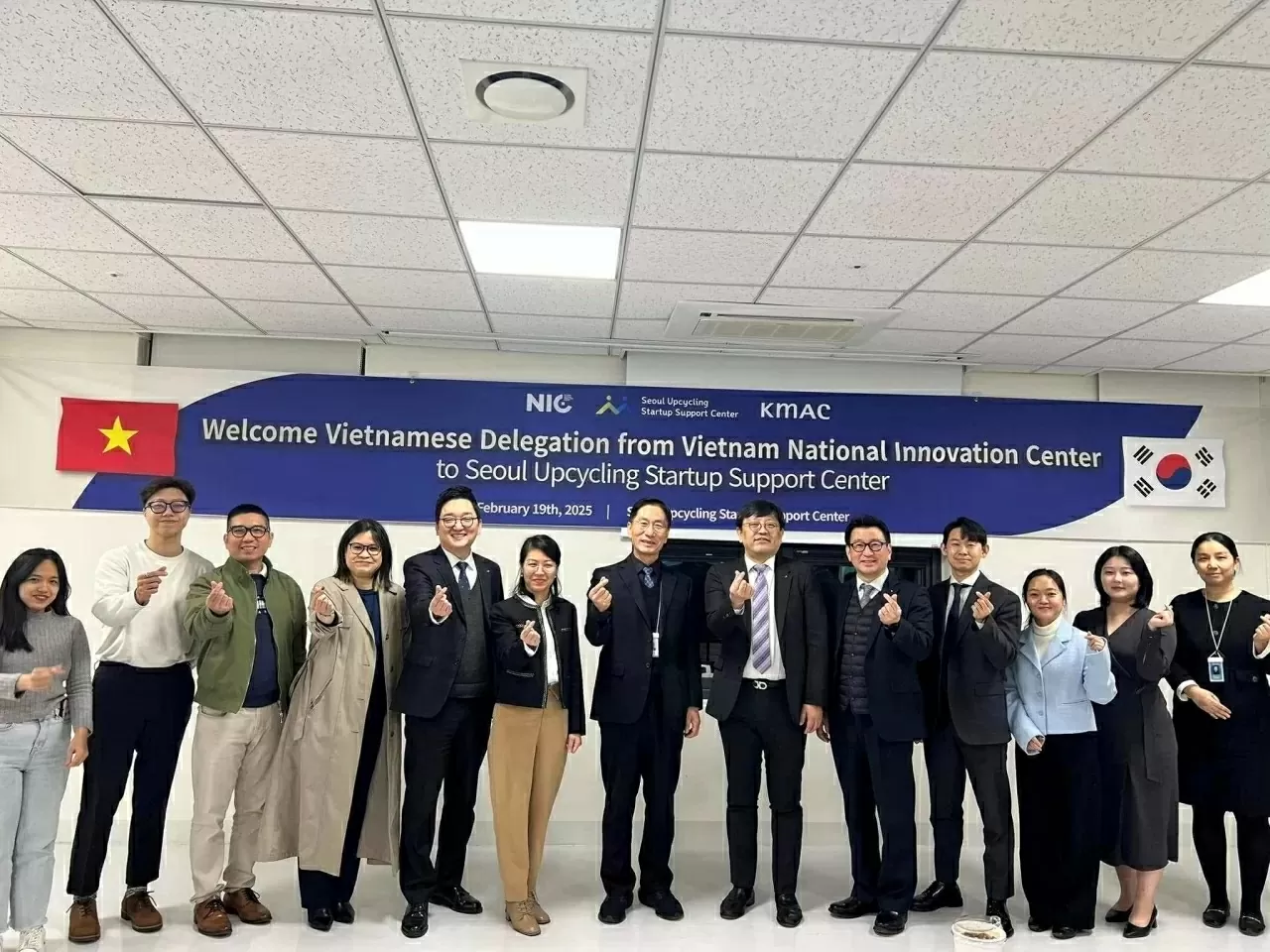
Riding the new wave of innovation in Vietnam: Expert
Latest
 |
| VINK Attends SEMICON Korea 2025 Semiconductor Conference in Seoul. (Photo courtesy of the character) |
How would you assess Vietnam’s innovation journey in recent years?
Vietnam has made significant progress in innovation, particularly in technology, startups, and digital transformation.
Firstly, digital transformation has advanced robustly. Vietnam has enacted policies to promote a nationwide digital transformation, with a strong focus on e-government, digital economy, and digital society. Technology platforms such as Zalo, MoMo, and VNPay have played a crucial role in reshaping consumer behavior and accelerating the digitization process.
Secondly, the innovation and startup ecosystem has grown rapidly. Vietnam has become one of the most attractive startup hubs in Southeast Asia, with over 3,800 startups, ranking third in the region after Singapore and Indonesia. International venture capital funds have invested in many Vietnamese startups, such as MoMo, VNPay, Sky Mavis, and Elsa Speak.
| More from WVR |
 PM urged implementation of Resolution No.57 on breakthroughs in science, technology, innovation and digital transformation PM urged implementation of Resolution No.57 on breakthroughs in science, technology, innovation and digital transformation |
Thirdly, the Government has shown strong commitment to promoting innovation. Over the years, Vietnam has launched several policies to encourage research and development (R&D), including the national program for developing high technology and various startup support funds.
What should Vietnam do to achieve breakthroughs in science and technology?
To achieve such breakthroughs, I believe Vietnam should focus on three key pillars:
Robust investment in R&D: Vietnam must increase R&D expenditure to levels comparable with other advanced countries in the region. At the same time, mechanisms should be developed to foster closer collaboration between businesses and research institutions, enabling the rapid commercialization of scientific innovations.
A favourable environment for startups and innovation: Support for tech enterprises, especially startups, should be strengthened through preferential tax policies, venture capital initiatives, and incubation or acceleration programs. Vietnam can learn from models in the Repbulic of Korea (RoK) and Singapore to enhance its innovation ecosystem.
Developing high-quality human resources: Greater attention should be paid to training experts in fields such as artificial intelligence, big data, blockchain, and digital biology.
Vietnam should also adopt policies to attract overseas Vietnamese talents to return home or contribute remotely through collaborative research, mentorship, or investment in domestic technology ventures.
“The Politburo’s Resolution No. 57 is a significant milestone, reflecting Vietnam’s strong commitment to advancing science, technology, innovation, and digital transformation. When a nation prioritizes science and technology, it not only creates opportunities for overseas experts to contribute but also makes them feel welcomed and valued. As a Vietnamese expatriate working in the technology sector in the Republic of Korea, I am greatly encouraged by the Vietnamese Government’s clear commitment”, Dr. Nguyen Quang Phuoc. |
Could you share some lessons from the RoK's innovation journey?
The RoK is one of the world’s most successful countries in terms of innovation, transforming from a resource-poor nation into a global technology hub. This success stems from a long-term strategic vision, strong policy support, and close collaboration among the government, private sector, and research institutions. Vietnam can learn a great deal from this model.
There are four major factors that have contributed to Korea’s innovation success:
Heavy investment in R&D: The RoK allocates one of the highest proportions of GDP to R&D globally, up to 4.8%, compared to the 2–3% range in many developed countries. Private corporations, particularly conglomerates such as Samsung, LG, Hyundai, SK, and Naver, contribute over 75% of R&D spending, while the government focuses on supporting foundational research and core technologies.
A vibrant startup ecosystem: Korea runs numerous startup support programs like TIPS (Tech Incubator Program for Startup), which provides investment capital, mentorship, and market access. High-tech clusters such as Pangyo Techno Valley provide fertile ground for tech enterprises. Government policies include tax incentives, research grants, and efforts to foster collaboration between businesses and research institutions.
Strong government-business-research collaboration: The government plays a supporting and guiding role, while businesses lead innovation efforts. Public research institutes and universities collaborate closely with enterprises to commercialize new technologies. Prominent institutions such as KAIST, KIST, and ETRI have been instrumental in driving Korea’s technological advancement.
A culture of innovation within enterprises: Major conglomerates like Samsung, LG, and SK allocate substantial budgets to R&D and actively promote creativity among their employees. The RoK also emphasizes global collaboration, acquiring technologies from the U.S. and Europe, and investing in foreign startups.
The RoK’s success didn’t happen by chance. It stems from clear national policies, substantial investment in R&D, a well-established startup ecosystem, and strong collaboration between government, businesses, and academia.
Vietnam can adopt and adapt this model to foster innovation, enhance its competitiveness, and move up the global value chain.
What solutions can help harness the strength of Vietnamese professionals at home and abroad to drive transformative achievements in science and technology?
To connect talent effectively, Vietnam should focus on building sustainable networks. The government could support the creation of online platforms and organize annual forums to facilitate engagement between overseas Vietnamese professionals and domestic businesses and research institutions.
In addition, attractive policies to draw and retain talent are essential. The state should introduce clear, appealing incentives to encourage Vietnamese experts to return home or contribute remotely. For instance, research support packages or tax incentives could be offered to those launching technology startups or collaborating with domestic enterprises.
Furthermore, public - private partnerships should be encouraged. Vietnamese companies can collaborate with overseas Vietnamese professionals to transfer technology, access international investment, and help drive the growth of Vietnam’s science and technology sector.
 |
| VINK Welcomes Delegation from the National Innovation Center (NIC) During Working Visit to South Korea from February 19-22. (Source: VINK) |
How will VINK respond to Resolution No. 57?
VINK is a non - profit organization legally registered in the RoK and a member of the Vietnam Innovation Network, supported by the National Innovation Center (NIC). Established in 2021, VINK currently comprises 120 members and aims to become a vital component of the global innovation ecosystem.
With its mission of connection, knowledge sharing, and collaboration, VINK serves as a bridge linking Vietnamese intellectuals and professionals in South Korea&Vietnam, affirming the role of the Vietnamese scientific community abroad.
In the near future, VINK will carry out a range of activities to promote innovation and sustainable cooperation, contributing to the development of Vietnam’s innovation ecosystem. These activities include organizing conferences and dialogues to share the RoK's technological experiences with Vietnamese businesses and institutions.
We will act as a bridge between Vietnamese technology experts in the RoK and Vietnamese startups and enterprises, facilitating joint research and technology transfer.
In parallel, we will develop online training programs, mentor Vietnamese startups in fields such as AI, blockchain, and biotechnology, and create opportunities for the RoK's investors and enterprises to collaborate with and invest in Vietnamese technology projects.
We believe that with the support of the Vietnamese Government and contributions from the overseas Vietnamese expert community, the country's science and technology sector will witness major breakthroughs in the near future.
Thank you very much!



















